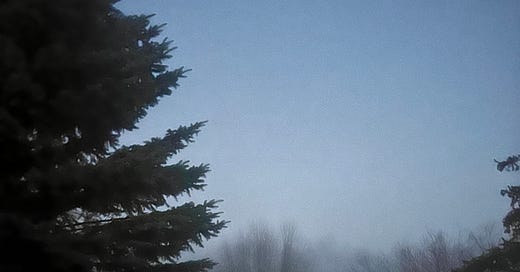This week I had my first post-op appointment after surgery. Healing is going well per the doctor, but she insisted I need to rest for another two full weeks because I still have swelling and pain from the surgical sites. Then she looked me straight in the eye and said NO WRITING. Good thing I tapped the words below on my phone before the appointment...
I’m aching to get back to writing here, there, everywhere. For now I’m typing two forbidden paragraphs to share these words because many readers requested them after I posted on Instagram. If you are not grieving, I’d invite you to save this for later, because grief comes for us all. There are more Psalms of lament than any other kind.
If you are grieving, I am with you.
Lament does not leap to hope.
It screams into the darkness.
It points a clear eye
at exactly the evil that God hates
and cries out—
“Do you not see this?”
By its end, lament turns to hope
Every time, yes—but first
It lets grief
And rage
And despair
And suffering
Take up all the sacred space they deserve
In the eyes of God who sees it all,
Who weeps with those who weep.
Lament does not leap to hope.
It crawls there
On bloodied hands and torn-up knees,
Through wailing and gnashing of teeth,
With weakened bones and battered soul.
Trust already comes in the crawling,
The gritty faith that drags us onward.
Our refusal to stay silent, small, or still
Before the God of mercy who made us.
So write the psalm of your lament,
Write it true.
With every brokenhearted letter.
With every ancestral rage.
With every generational fear.
There will be time and space
For you to turn to hope:
That is called Tomorrow.
Today is the time and space
To trust that God hears the whole prayer.
Even the brutal beginning.
//
Laments follow a formula. Not because they are flimsy or less full of faith, but precisely because when we flounder for words, we need ancient structures to help us hold on.
Psalms of lament start with the complaint (the technical term, believe it or not): an unflinching stare at whatever suffering, personal or communal, is making it feel impossible to find or trust God.
The psalmist doesn’t mince words.
My soul is filled with troubles.
All who see me mock me.
My bones are shuddering,
My soul too is shuddering greatly.
Questions pile up like boulders:
Why have you abandoned me?
How long, O Lord?
Do you hear my cry?
Where is our God?
The psalmist speaks truth from this place, but does not stay here. By the prayer’s end, words soar with the strength of stubborn hope. But they could not have reached God’s ears without the full truth, the whole song that is our human condition.
First the turn to God.
Then the cry of pain.
Then the plea for help.
Then the prayer of trust.
A guttural cry is the first verse of lament’s song. It will not be skipped, shrunk, or shrugged off by evil kings or leering crowds.
Do not rush to cheer or jeer. Do not fear
This sunken pit cannot be summited.
Neither side is ever divine
Because every side is human.
But all of it is held.
None of it is forgotten.
Every word is heard.





“The psalmist speaks truth from this place, but does not stay here.”
This was a good work for me, a reminder that nothing is permanent. Wherever I am is where I am, but it’s not where I’ll stay.
The psalmist being dragged ahead by faith on bloody knees… this is where I am after an IVF miscarriage. Thank you for this.